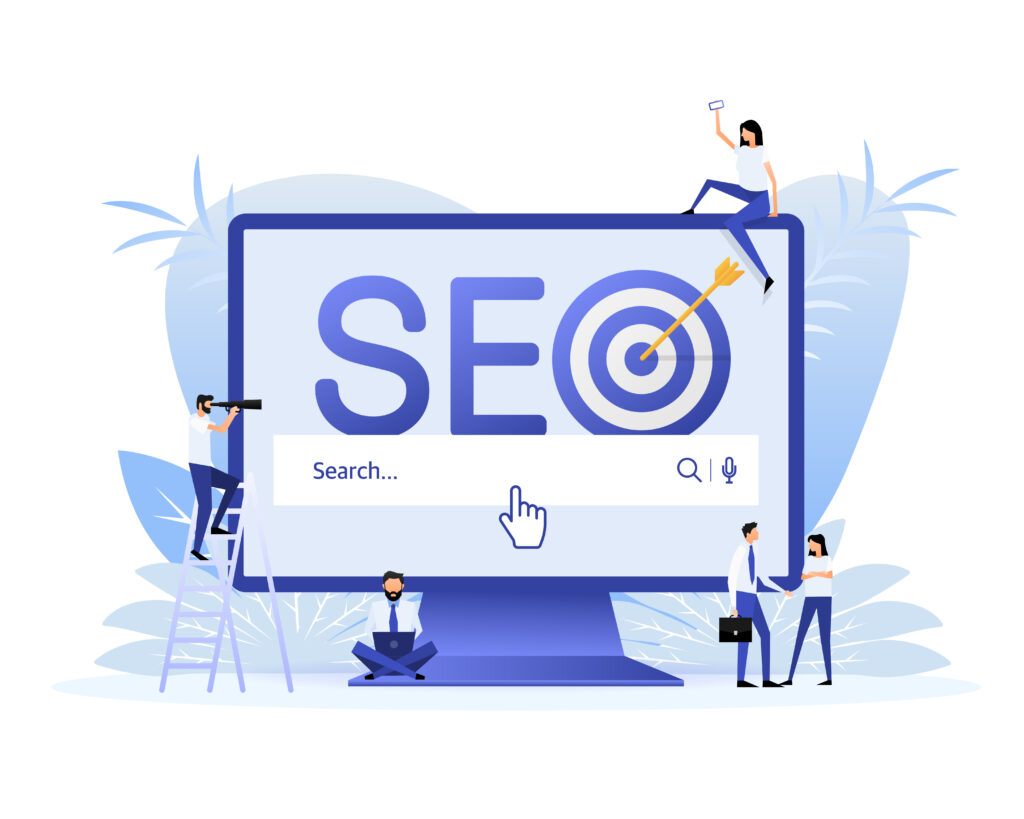Upon seeing the title of this blog post, you may be asking yourself “What is SEO?” particularly if you're not familiar with the many different aspects of web marketing. SEO stands for “search engine optimization” and it’s the next topic in our series on creating a powerful web presence for your firm.
SEO is the science of improving the quality of your website to score favor with search engines and increase visibility. When utilizing a search engine such as Google or Bing, most people don’t check beyond the first page of results, or even scroll down the length of the page. These search engines present browsers with what they believe are the best results.
Want to improve your ranking? Then you need to convince the search engines that your website is worthy by bringing in an impressive amount of organic traffic. If you’re looking for tips and tricks on how to do just that, then you’ve come to the right place.
![]()
Keywords are key. And very aptly named! Search engines will peer closely at keywords within your domain, subdomain, page titles, descriptions, metadata, and more. Mention your name and the type of lawyer you are as often as possible. Ensure your writing is clear and succinct in these important locations. Search engines want to be sure they are displaying relevant search results or else they could lose credibility. Your content should be accurate and trustworthy.
If you decide to run a blog, pick a unique name that no one else has. When deciding on what to write, consider what common questions your clients might search for and build off that. Creating an FAQ with answers to common questions you face in your field could be a great way to bring in potential clients who are desperately seeking answers or advice.
All of these actions will considerably heighten your chances of being found by the average internet user.
Utilize pages and links. The more pages and links you have, the more you improve your SEO. This doesn’t mean go crazy. Every webpage you create should have useful information. And while linking to other articles is good, others linking to your website is what truly counts in the algorithm.
How do you encourage others to link to your website? If you create compelling, shareable content and spread the word, you may get others talking. Or you could simply ask your partner or fellow lawyers to link to your website. Links that exist within the same industry will perform best and add more value.
Just like you can buy Instagram followers, you can buy links. Do not do this, as it is against Google's guidelines and can get you blacklisted. Practice patience and grow your traffic naturally instead.

(High quality) Content is king. Advice columns, informative graphics, video content that pops off the page…there’s no shortage of options with content creation. When it comes to search engine optimization, creating a blog is a great choice. It’s an opportunity to share your knowledge while building up your website’s page count and linkage, as mentioned above. Struggling for topics? Blog about your journey as a lawyer or the founding of your firm. Write a piece on common questions or steps to take when looking to hire a lawyer. Check out the latest news in law and talk about that. Above all, enjoy yourself. If you enjoy writing it, your audience will enjoy reading it.
Want even more useful tips on writing blog posts that Google will favor? Check out this article by HubSpot!
Aim for a positive user experience. Think like your audience. Most likely, they don’t possess the expertise that you do. You can pour all of your impressive knowledge about your field of practice onto a web page, but if the average user can’t understand it or feels overwhelmed, they’ll go looking for answers elsewhere (leaving the search engine unimpressed).
Instead, try to break down your knowledge into bite-sized, easily digestible pieces of information. Present everything in a way that’s easy to read and pleasing to the eye. Today's world moves fast, and attention spans are short. Make your content easy to scan by using bold headers, bulleted lists, and shorter paragraphs.

If all else fails, paid ads are an option. To appear above the organic search results and the competition, you can always reach for your wallet. These are marked as sponsored ads and don’t have anything to do with SEO, since that’s all about organic search results and climbing the ranking naturally.
Improving your SEO can be a time-consuming challenge, but don’t give up hope yet! There are hundreds of different factors Google observes when ranking websites. Check out this extensive list to learn even more!



